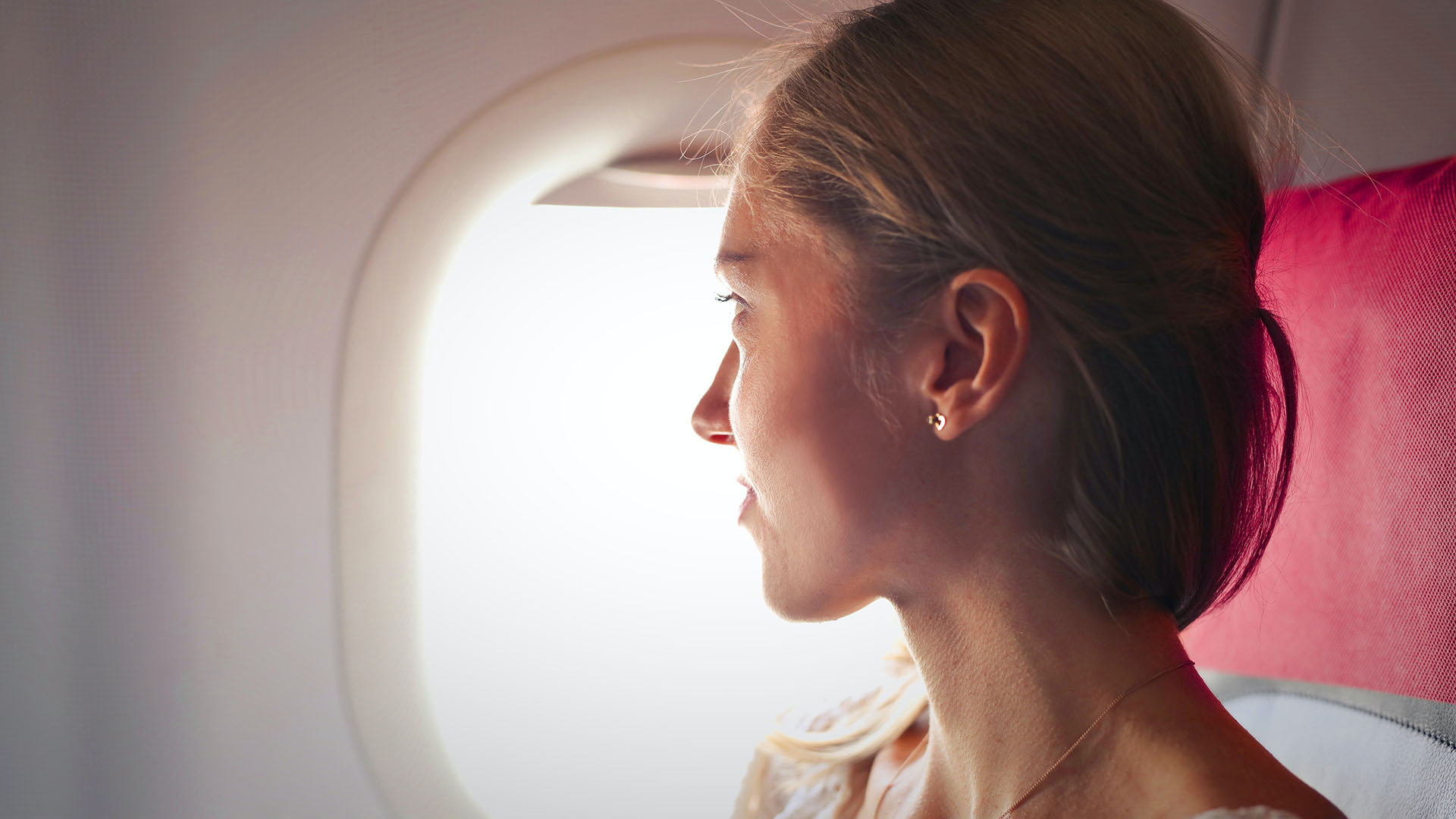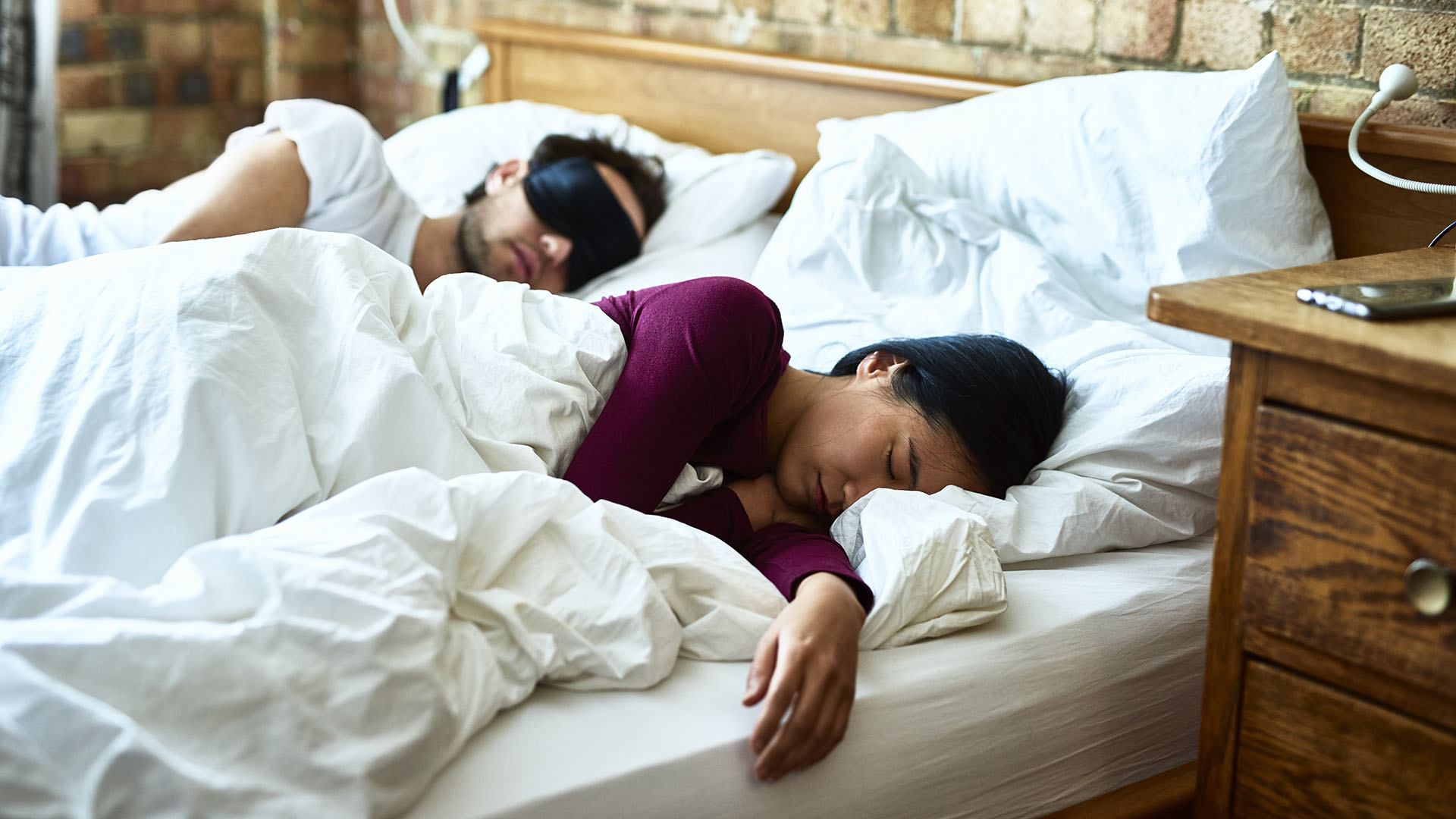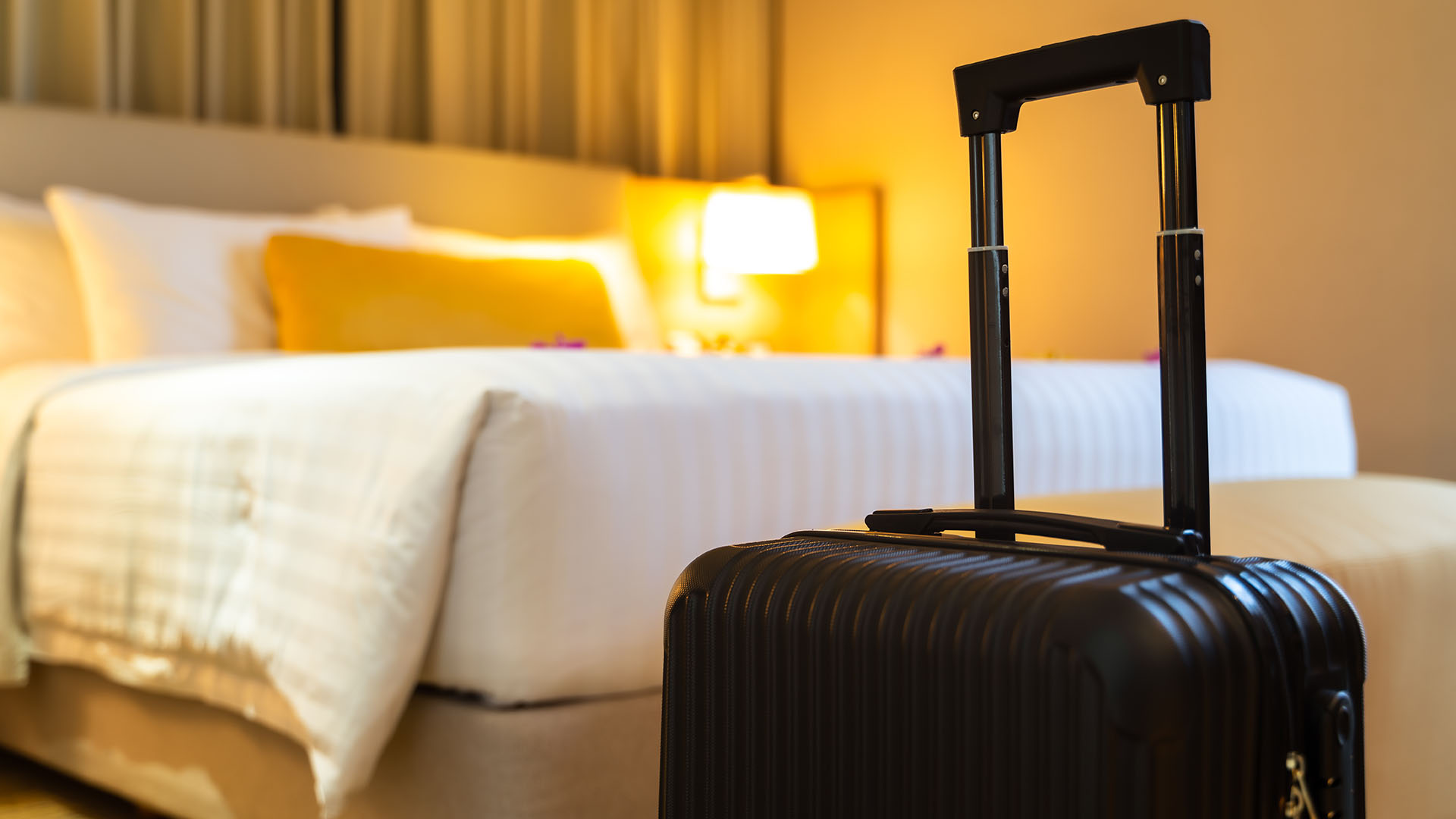
Whether you're going on vacation or taking a business trip, there's a lot to like about flying. Unfortunately, jet lag isn't one of them.
Jet lag is the bane of anyone taking a long flight that crosses time zones. It typically means feeling drowsy during the day and finding it difficult to sleep at night, even if you've been blessed with the best mattress ever at your holiday accommodation. It can combine with something called the first night effect, which is basically where your body conspires against you to stop you from getting a good night's sleep when you're in a new location.
So what can you do about it? In this article, we'll explain what jet lag is, how it works, and how you can avoid the worst symptoms. To help get ahead of the problem, you might also want to consult our guide to how to sleep on a plane. Or if you're already back from your trip and missing that lovely bed you slept on abroad, check out our guide to what mattresses hotels use for more on that.
What is jet lag?
Jet lag occurs when your body's internal clock is disturbed after a long flight that takes you from one time zone to another. It usually takes a few days for your body to adjust to the new time zone, which can leave you feeling sleepy in the daytime, but wide awake at night.
Worse still, if you do get used to the new time zone, you may then suffer jet lag all over again when you fly home. It would be nice if our bodies could automatically adjust to new time zones, like changing the time on a clock, but unfortunately they can't.
"We operate according to circadian rhythms, also known as 'body clocks', which are physical, mental, and behavioural changes that follow a 24-hour cycle," explains Time4Sleep's resident sleep expert, Dr Hana Patel. "That means our bodies are aware of the time of day, and send signals to encourage drowsiness at night time, and alertness in the day."
This generally works fine, until we encounter a situation that evolution simply didn't anticipate. "When we travel, and particularly if we cross several time zones, our bodies stay in the time zone that we've traveled from," says Dr Patel. "And it can take up to a few days for our body clock to recalibrate itself to the new time zone."

What are the symptoms of jet lag?
The symptoms of jet lag can be pretty uncomfortable. "They may include fatigue, insomnia, and other unpleasant symptoms like headaches, brain fog and sometimes even body aches, because our bodies haven’t had enough restorative sleep," explains Hafiz Shariff, a sleep expert and the founder of mattress brand Owl + Lark.
"Jet lag can be especially challenging for frequent travelers or those who have a demanding work schedule that requires them to travel frequently," he adds. "Because their internal body struggles to adjust to the constantly changing day and night cycles, not knowing which to follow."
Dr Patel adds that jet lag doesn’t impact each person the same way. "Typically, people report difficulty with uninterrupted sleep and struggle to get up and feel productive in the morning," she says. "You're likely to feel tired and fatigued, which impacts your energy levels throughout the day. A lack of good quality sleep can also have a cannonball effect on other cognitive behaviours such as alertness, concentration and memory. Jet lag may even affect your metabolism and bowel movements and you may experience anxiety and dizziness."
How long does jet lag last?
Our bodies need a surprising amount of time to recalibrate once they’ve experienced a bit of turbulence to their circadian rhythms. “Jet lag symptoms usually last between 48-72 hours once you’ve arrived at your destination," says Dr Patel. "And this can impact holidays that only last a few days, so you need to factor in time to 'reset’ your body clock."
"The longevity of jet lag depends on the number of time zones you‘ve crossed," she adds. "The general rule of thumb is that it takes almost a day for every time zone you cross to recover.”
Which way is jet lag worse?
As a general rule of thumb, jet lag is worse when traveling from west to east than east to west, as this research paper shows. "This is because it is easier for the body to delay its natural sleep-wake cycle (circadian rhythm) than to advance it," explains Dr Patel.
That said, jet lag can still be pretty unpleasant in either direction. When you travel east, your body clock is telling you to go to bed when it's still daytime in your new time zone, which makes you tired and sluggish. When you travel west, though, it's not always a picnic either. Your body's natural clock will be telling you to stay awake when it is already night-time in your new time zone, making it difficult to sleep. And if you end up staying awake at night, you're going to be tired and sluggish the next day.
How to get rid of jet lag
We've explained above what jet lag is and why it makes us feel terrible, but what can we do about it? Frustratingly, there's neither an easy cure, nor a surefire way to prevent jet lag. But there are strategies to minimize it. Read on as we outline the most common approaches.
1. Adjust your sleep schedule in advance

To avoid jet lag, Shariff recommends adjusting your sleep schedule a few days before your trip. The idea is to gradually shift your bedtime and wake-up time as close as possible to the destination's time zone. You'd ideally do this in increments of 30-60 minutes depending on how big the time difference is.
For example, imagine you live in New York, you're traveling to Honolulu (a time zone difference of six hours), and your normal wake-up time is 8:15am. That would mean gradually easing yourself into getting up at 2:15am, New York time, the night before your flight. That might sound extreme, but it would mean that once you arrive in Honolulu, you'll be acclimatized to getting up at your normal time in Hawaii-Aleutian Standard Time.
If it's night-time at your destination, try to get some sleep on the plane too. Of course, that's not always easy, so it's good to be prepared. "Using sleep accessories like a comfortable pillow or eye mask can also help you get better sleep during your flight, and minimize the impact of jet lag by blocking out any sunlight which will mess with your internal body clock," suggests Shariff.
Get instant access to breaking news, the hottest reviews, great deals and helpful tips.
2. Watch what you eat and drink
There's evidence that eating less food or even fasting for a period of up to 16 hours before arriving at your destination can ease the symptoms of jet lag. As Dr Patel explains: “One study found that when flight attendants regulated their meals it was easier for them to adjust to the different time zones which positively impacted their general well being in the busy role."
More generally, she adds, "I'd recommend drinking plenty of water throughout the flight, and avoiding caffeine, alcohol and salted foods such as crips and peanuts.”
3. Avoid booze and pills
If you're struggling to sleep, it's tempting to reach for booze or sleeping pills to "knock you out". But Shariff points out that this won't help your jet lag.
"While sleep aids like medication or alcohol may help you fall asleep initially, they can disrupt your natural sleep cycle and actually worsen the symptoms of jet lag overall," he explains. "And that will just make you feel more sluggish and prone to oversleeping, when you should be trying to adjust your cycle to the local time.
"Instead, I recommend natural sleep aids like chamomile tea, lavender oil, or melatonin supplements," he says. "These can help regulate your sleep cycle but are far more gentle and will usually be out of your system before you land, giving you a clear head and headstart to adjusting your internal clock."
4. Get back on track with sleep asap

"It's crucial to change back to normal sleep schedules as soon as the plane lands," says Nic Shacklock of OnlineBedrooms.co.uk, a website focusing on all things sleep-related. "Adjusting time zones may be hard, but it is important not to delay getting good sleep on the correct timings. Try hard to stick to the recommended eight hours of sleep a night, to ensure a healthy sleep schedule."
In other words, rather than indulging in a lie-in the day after you land, turn on your alarm and get up at your normal wake-up time, in the new time zone. "Although it may be very tempting to hit the snooze button over and over, resist the temptation to stay in bed," says Nic. "Similarly, avoid napping throughout the day, however much you might want to, and only sleep during the night."
Dr Patel agrees. “As much as lie-ins are the ultimate holiday treat, if you know you suffer from severe jet lag symptoms, I'd recommend trying to keep to your normal routine even if this means waking up early," she says. "Going to bed and waking up at the same time that you would do at home will expose your body to as much natural light as possible. This is another way to encourage your body clock to acclimatize to the new time zone and will quickly settle you into a routine again.”
5. Get active outdoors
It's also important to get outdoors, because sunlight will help restore your normal circadian rhythms faster. "Ensure you get plenty of light exposure during the daytime, even if it is a cloudy day," advises Nic. "This will increase your body’s vitamin D levels and help regulate your body clock. It also helps produce the melatonin hormone, which is a natural hormone released by the body in the evening to let your brain know it's time to sleep."
Rather than relying on artificial stimulants to stay awake, a short walk, jog or bike ride can help produce the adrenaline that can see you through the day. "Exercise benefits both the mind and the body, and moving around at the right time during the day is a great way to rejuvenate yourself," says Nic. "It will give you that quick energy boost you need to ease any jet lag and delirium. Exercise can also induce tiredness for a deep sleep, come nighttime."
Dr Patel agrees. "In the first 48 hours of your trip you may find you have excess energy at random periods throughout the day," she notes. "Stay active with exercise during the day so when it comes to sleeping, you’ll be ready for rest.”

Dr Patel works as an NHS and private GP specialist in mental health and sleep and is passionate about supporting patients struggling with sleep-related health issues, having previously provided commentary on a range of sleep-related topics using her expertise.
Tom is a sleep product and mattress reviewer and reporter, who writes about everything from bed dimensions to how to wash and maintain key pieces of bedding such as mattress protectors and foam bed toppers. For Tom's Guide, he has produced a series of articles on the different mattress sizes and how to choose the right one for your bedroom space and sleep needs. Outside of Tom's Guide, Tom regularly writes about sleep our sister site T3. Over the years he's tested a number of mattresses, duvets and pillows, and as someone with back pain, has a keen interest in finding ones that offer maximum support. Plus, in running a successful Airbnb business, sleep hygiene and providing the right bedding for guests has become a big part of his day-to-day life.
 Club Benefits
Club Benefits






